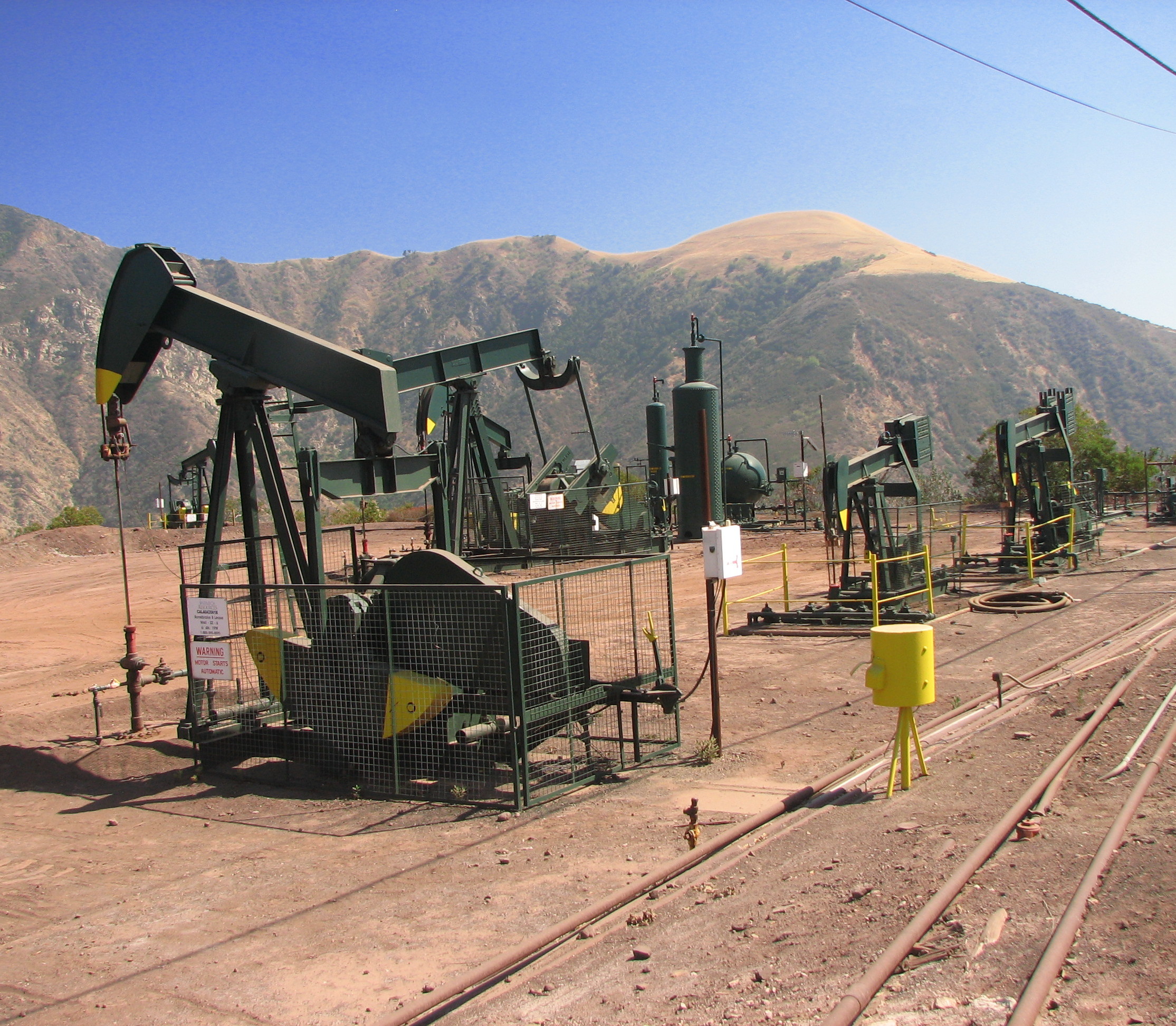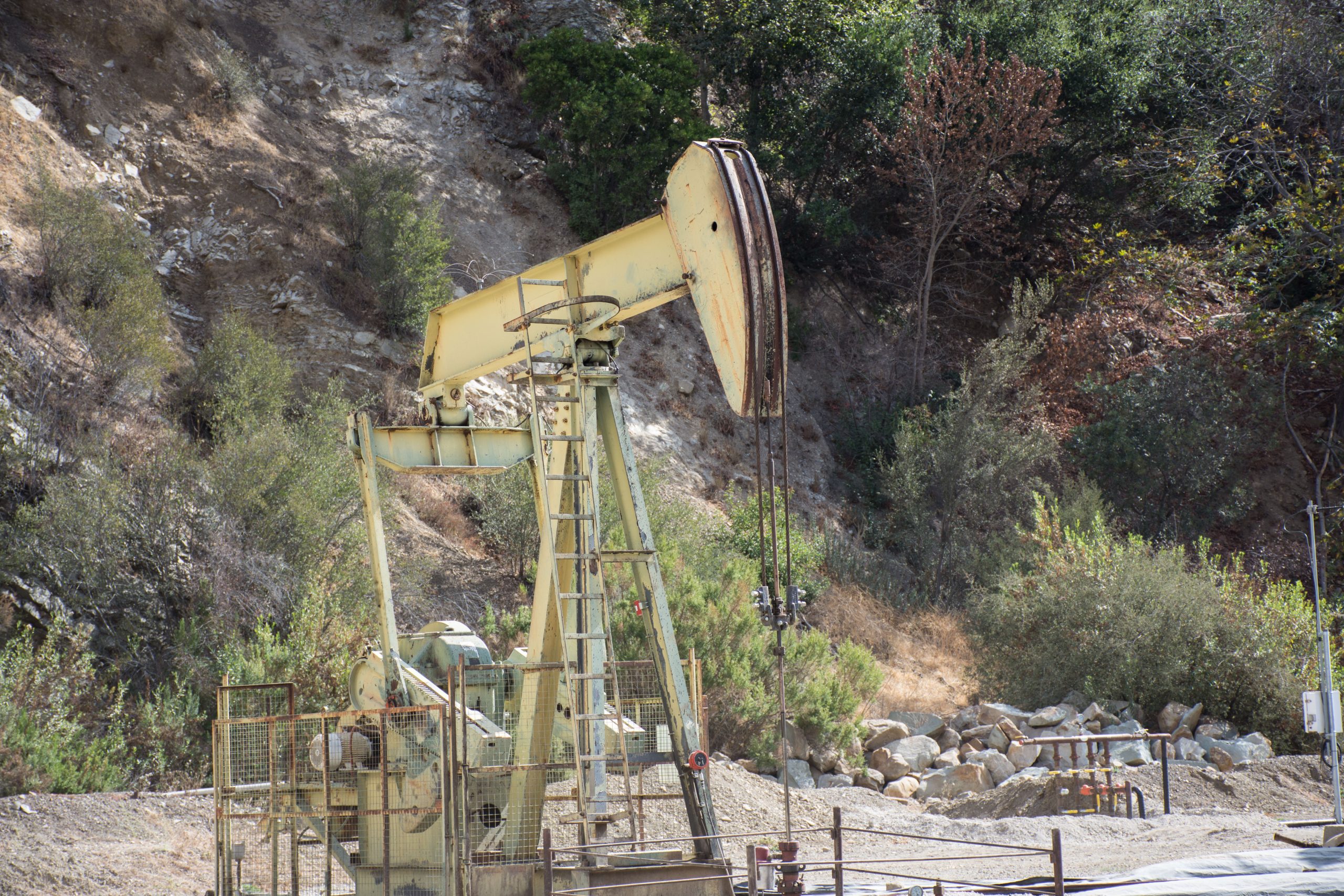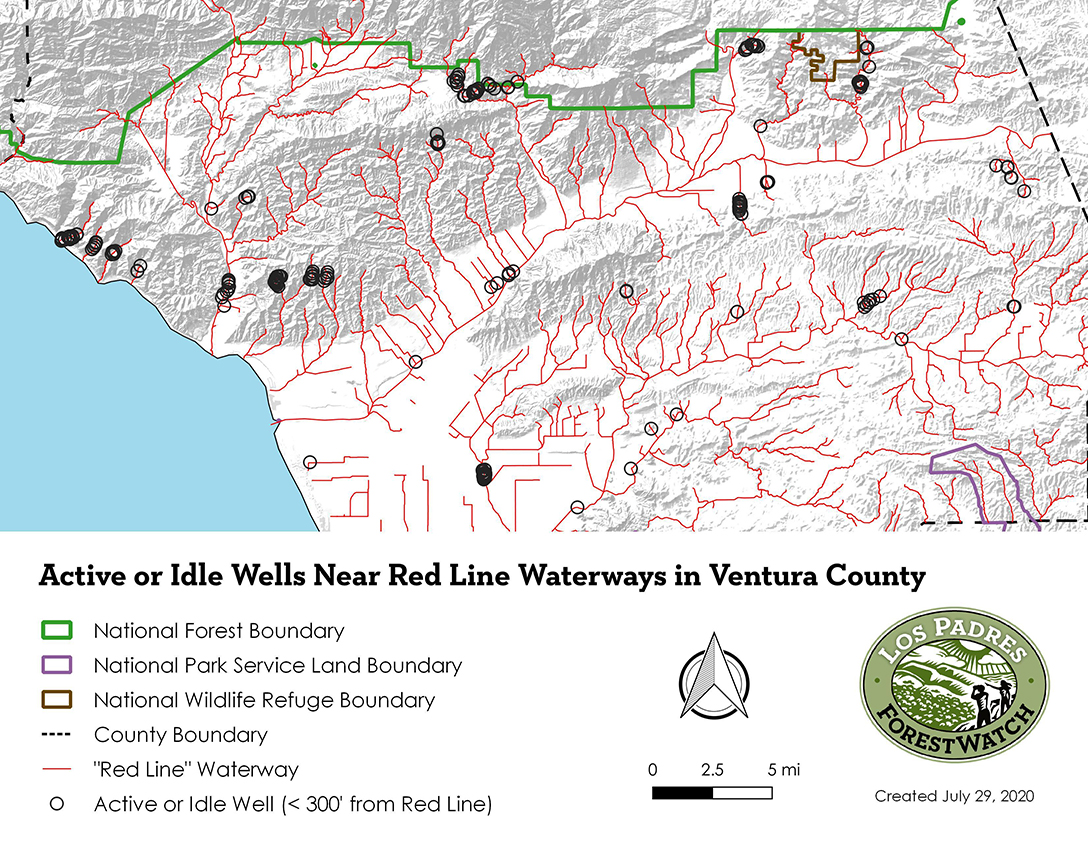
Ventura, CA — On Thursday, the Ventura County Planning Commission voted 4-1 to update the Zoning Ordinance for oil and gas wells operating under antiquated permits, sending the proposal to the board of supervisors for a final vote. Thousands of oil wells in Ventura County operate under “antiquated permits” that were issued up to 75 years ago—before environmental and human health impacts were known, and long before bedrock environmental laws existed. Many of these wells are located within or adjacent to the Los Padres National Forest. Others are dangerously close to communities like Ventura, Oxnard, and Fillmore. Hundreds of community members and environmental and climate justice organizations sent letters and called in to speak at the hearing in support of updated oil permitting to better protect the health and safety of the community, the climate, and public lands.
“Oil companies should not be allowed to drill an unlimited number of wells, for an unlimited amount of time, and without thorough evaluation of potential impacts to public health and the environment,” said ForestWatch’s director of advocacy Rebecca August. “All new wells in Ventura County should abide by the same modern environmental standards that other businesses in Ventura County must follow.”
Last fall, the Ventura County Board of Supervisors directed County staff to update the County’s oil drilling ordinances so that new wells drilled or fracked under these antiquated permits would be subject to greater transparency and environmental review.
Under current rules, an oil company only needs to submit a short application along with a $330 permit fee to receive a “zoning clearance” to drill or frack a well in Ventura County. A zoning clearance process is considered ministerial, in that if the applicant checks all the boxes and pays the fee, the county must approve it, no discretion allowed. Other ministerial actions include marriage licenses and backyard gazebos.
Most antiquated permits have no limit on the number of wells that can be drilled, have no expiration date, and do not stipulate what drilling techniques can be used. Also under antiquated permits, new wells are approved without public notice or hearing and have never undergone environmental review.
“This issue is especially concerning when we look at the number of active or idle wells near surface water features,” said ForestWatch conservation director Bryant Baker, “Hundreds of these wells are within a few hundred feet or are immediately adjacent to streams, risking surface water quality. Without addressing this issue, new wells will continue to be drilled along streams and in other sensitive areas.”
In response to the vote Tomás Rebecchi, Central Coast Organizing Manager with Food & Water Action said, “This is a huge victory for communities living near oil and gas production. Before this update, oil companies could avoid all current environmental laws and reviews by checking a few boxes and paying a small fee. We know so much more about the environmental and health risks of oil production than we knew 75 years ago, or even 2 years ago.” Rebecchi pointed to numerous studies including two released last month by Berkely and Standord showing the impacts of living near oil wells, including asthma, cancer and preterm births.

“Now the true cost to public health and our resources will be evaluated when approving oil wells. Any new analysis will show that we should not drill any new wells given what we now know about climate change and the health impacts on the communities near these wells,” said Rebecchi.
This update will only apply to new wells, despite comments from many in favor of the oil industry claiming it will shut the industry down. Commissioner King mentioned in his final remarks that “I don’t see any evidence that this will be capping existing wells.”
Climate First: Replacing Oil & Gas (CFROG) President John Brooks said, “Equal protection under the law means all of us should be treated the same. No special treatment for oil permits.”
Environmental groups including CFROG, Food and Water Action and Los Padres Forest Watch have been raising concerns about these loopholes for years and feel gratified by the final vote. “We applaud the planning commission for taking action to protect Ventura County from the harmful impacts that under-regulated oil development would have on public health, precious water resources, public lands, and the environment,” said August.
The proposal will now go to the Ventura County Board of Supervisors for a final vote in the coming months.








Comments are closed.